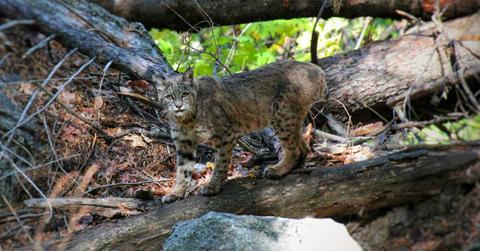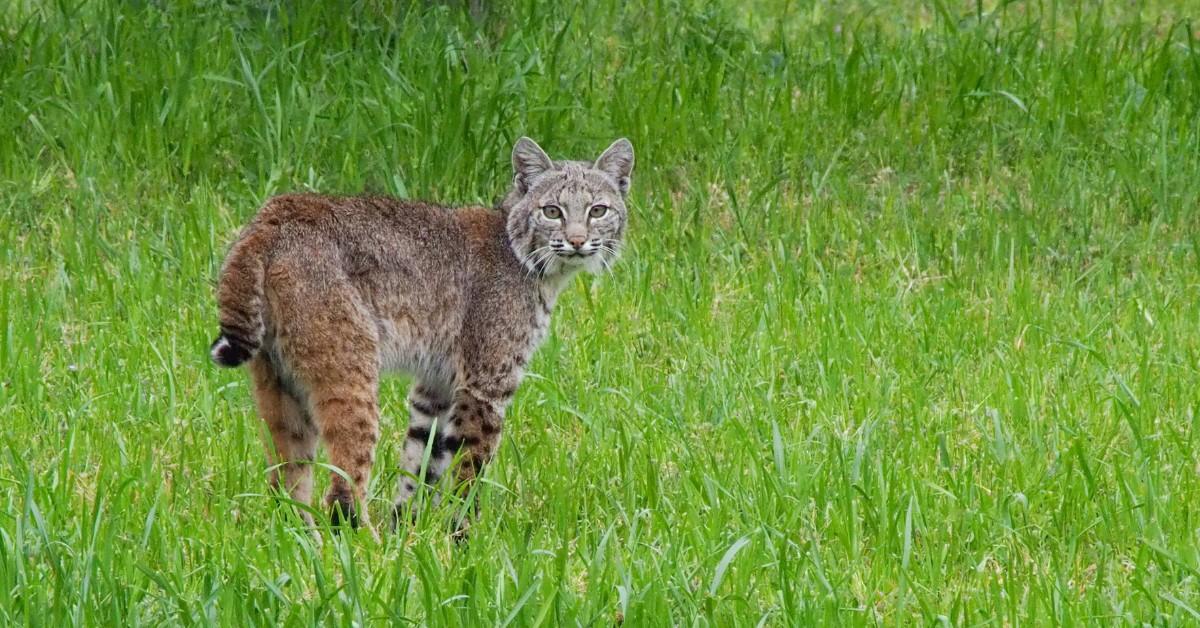Keeping a Bobcat As a Pet Is Legal in These States — But Is It Safe?
Read this before adding a bobcat to your family.
Published Feb. 12 2025, 3:03 p.m. ET

The American bobcat is a wild cat that falls under the species of lynx. And while they are smaller in stature than a lot of other wild cats, you shouldn't let their cute and cuddly appearances fool you — these little kitties can be just as ferocious as some of their bigger and more widely known cousins.
But, their smaller nature does make many wonder just how much they have in common with the domesticated house cat, since bobcats are typically only slightly bigger than the kitties we bring into our homes and families. In fact, some people believe that bobcats can live alongside humans as long as they are adopted at an early enough age and raised in close proximity to their adopted humans.
But, do bobcats actually make good pets? Keep reading to find out.

Can bobcats be pets?
Technically, yes, bobcats can be pets.
According to World Population Review and Big Cat Rescue, it's legal to keep a bobcat as a pet without a permit in several states, including Alabama, Nevada, North Carolina, and Wisconsin. There are also around a dozen states where you can have a bobcat as a pet, though a permit is required.
But should you keep a bobcat as a pet?
Is it safe to keep a bobcat as a pet?
Overall, no, it's not the best idea to keep a bobcat in your home.
At their core, bobcats are wild animals, and they belong in their natural habitat. That is where they will have the best access to their native foods and environmental conditions, as well as access to the space they will need for their emotional well-being.
Additionally, bobcats cannot be housetrained, according to the Cats.com website.
Unlike domesticated cats, you won't be able to teach a bobcat to use a litterbox, which could turn your home into quite a stinky mess. Bobcats also have certain biological impulses that could wreak havoc on your personal belongings, including the way they spray urine and scratch up hard surfaces (like your sofa) to mark their territory.
Superficial reasons aside, you may find yourself struggling to find the appropriate veterinary care for your bobcat, which could become very dangerous should they become sick or injured. That's because most vets don't handle wild animals.
Lastly, it could be against the law. According to the Big Cat Rescue website, some municipalities have very strict rules about keeping wild or exotic animals as pets.
If you tried to keep a bobcat in your home and the authorities found out, it could end badly for both you and your four-legged friend. You could face serious fines or even jail time, and depending on how long your bobcat has been removed from the wild, they could end up euthanized if rescuers feel that reintroducing them into nature wouldn't be possible.
Are wild bobcats friendly?
If you've ever spotted a bobcat in the wild, you may have felt the urge to go up and give them a few scratches around the ears.
But, if you attempted that, you'd likely end up being the one with the scratches. That's because bobcats can exhibit aggressive behavior at times, according to the PangoVet blog.
That means that it doesn't matter whether you've spent years with a bobcat in your home, they could still decide to attack one day, even if they've never shown any violent behavior before.
Bobcat vs lynx: what's the difference?
As mentioned, the bobcat is a member of the lynx species. It's actually one of four types of lynx, according to Cats.com — which includes the Eurasian lynx, Canada lynx, and the Iberian lynx — and the North American bobcat is also sometimes called a red lynx.
And while there are differences between the different lynxes, including coloring and size, they typically all have noticeably pointed fur at the tips of their ears and under their chins.
But, no matter whether you spot a bobcat or one of his lynx cousins out in the wild, it's important to remember that these cats belong out in nature where you found them and that they should never be brought inside in an attempt to be domesticated and raised alongside humans and other animals.